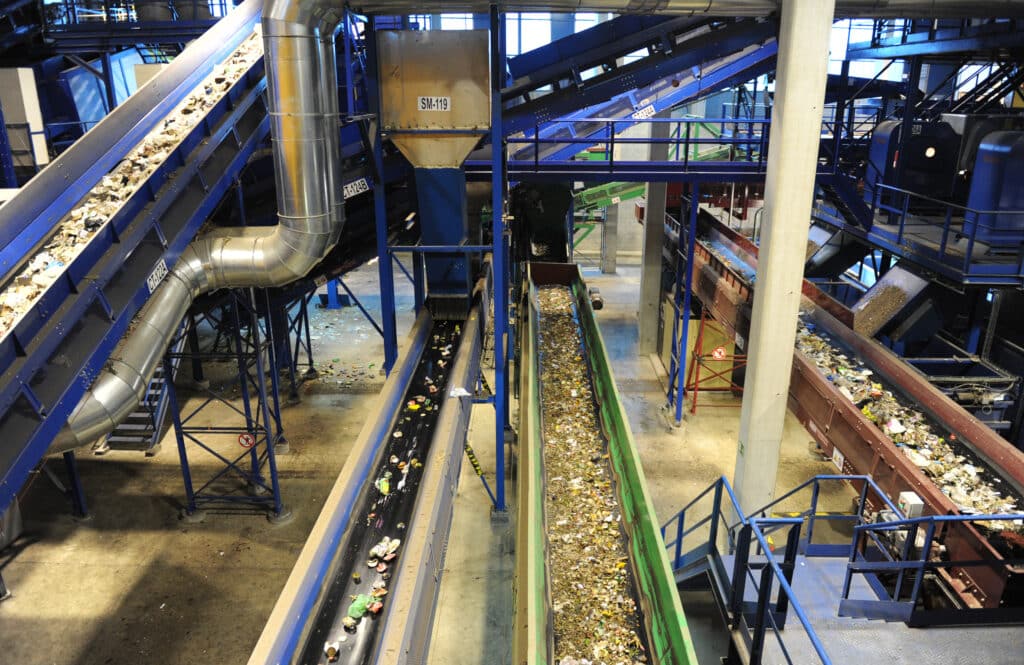The Maresme Waste Consortium will install a deodorisation system in its biomethanisation plant to minimise odour impact in the short term.
In the long term, the transformation of the wet biomethanisation and biostabilisation systems for the treatment of organic waste is planned, which will provide a definitive solution to the impact of the odour.
Maresme Circular, the brand of the Maresme Waste Consortium, will install a deodorisation system in the coming weeks in the biomethanisation plant of the Maresme Integral Centre for Waste Recovery in order to minimise the impact of the odour on the plant’s surroundings.
Since 2021, the company Odournet, SL, commissioned by Maresme Circular, has been monitoring, controlling and supervising the odour impact of the plant in accordance with the technical standards UNE 17325 – determination of odour concentration by dynamic olfactometry and odour emission rate – and UNE 16841-1 – determination of odour in ambient air using field inspections – as there is currently no specific law regulating odour pollution in Catalonia or Spain.
It is during these inspections that an undesirable odour impact has been detected in the industrial estate in the vicinity of the Maresme Integral Centre for Waste Recovery, caused by the treatment of the 100,000 tonnes/year of organic matter of the residual fraction from Maresme and Vallès Oriental that the Consortium is responsible for managing.
“The odour studies we carry out periodically allow us to identify improvements to be made,” says the director of Maresme Circular, Carles Salesa, who explains that “with the aim of minimising the odour impact in the short term, we have been implementing an action plan for some time, which includes improving the closures and ventilation systems, as well as the incorporation of a deodorisation system in the centre’s biomethanisation plant”.
Moreover, as a result of the actions carried out as part of the action plan, a reduction in odour impact could already be observed in 2022 compared to 2021 and it is expected that the reduction will also be reflected in the results of the 2023 study.
Long-term solutions
In the long term, Maresme Circular is working on a comprehensive renovation project for the facilities of the Maresme Integral Centre for Waste Recovery, which will, among other things, eliminate the impact of the odour impact that is currently produced in the vicinity.
The proposal, which is innovative in Spain, aims to decarbonise the centre and consists of implementing technologies for capturing, purifying and liquefying CO2 emissions for storage and commercialisation. To this effect, the transformation of the wet biomethanisation and biostabilisation systems for the treatment of organic waste is envisaged, which will provide a definitive solution to the impact of the odour.
Prevention in the generation of organic waste
At the same time, Maresme Circular is aware of the importance of raising awareness and prevention in the generation of waste; also with regard to the reduction of odorous pollution.
45% of the waste that arrives at the Maresme Integrated Waste Recovery Centre corresponds to organic matter that should have been thrown into the brown bin at source. In addition, 10% of this organic waste – that is, 5% of the 210,000 tonnes of waste that arrive at the Maresme Integrated Waste Recovery Centre – is food waste.
For this reason, apart from continuing to raise awareness of the correct separation of waste at home – if citizens separate their waste properly and throw organic matter in the brown bin, it will not reach the Maresme Integral Centre for Waste Recovery and can be used to make high quality compost – this year Maresme Circular has deployed a series of actions to prevent food waste aimed at the public.
As part of the Maresme Waste Prevention Plan, which aims to reduce waste generation in the county by 26% by 2027, the actions consist of several free reuse cooking workshops – held in Vilassar de Mar, Canet de Mar and Mataró, and in the coming weeks in Alella, Calella, Cabrils, El Masnou and Teià – and the creation of a reuse cooking circuit in El Masnou, the holding of a food reuse recipe competition, the drafting of a Manual against food waste and various training sessions on good practices for food reuse aimed at the catering sector and school canteens, among others.
The commitment of Maresme Circular to continue improving waste management is firm.

Maresme Integral Centre for Waste Recovery / Marga Cruz



